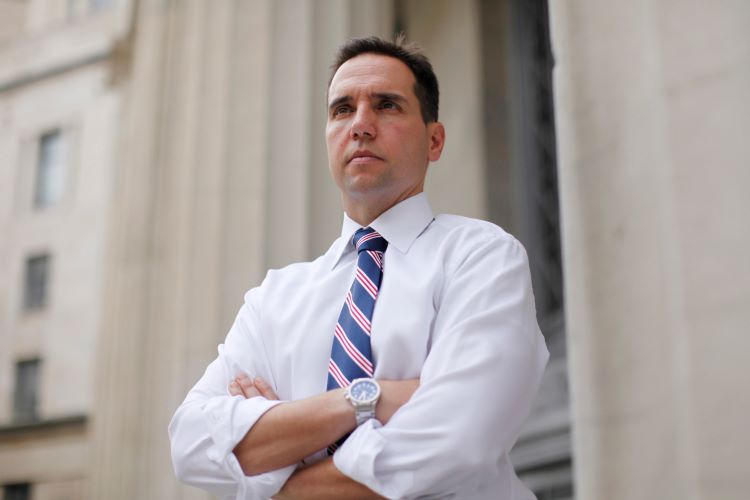Are former presidents 'above the law'? Acting quickly, special counsel asks SCOTUS for Trump immunity decision

Veteran prosecutor Jack Smith in August 2010. Smith told the U.S. Supreme Court on Monday in a court filing that it is “of imperative public importance” that the high court resolve former President Donald Trump’s immunity claims. Photo by Charles Dharapak/The Associated Press.
Updated: Special counsel Jack Smith asked the U.S. Supreme Court on Monday to decide whether former President Donald Trump is immune from prosecution for seeking to overturn the 2020 presidential election.
Smith asked the Supreme Court to grant cert before judgment, so that the high court could hear the case before a federal appeals court acts. He sought review only 10 days after U.S. District Judge Tanya Chutkan of Washington, D.C., ruled against Trump’s immunity claims.
“This case presents a fundamental question at the heart of our democracy; whether a former President is absolutely immune from federal prosecution for crimes committed while in office or is constitutionally protected from federal prosecution when he has been impeached but not convicted before the criminal proceedings begin,” Smith wrote in the Supreme Court petition. “The district court rejected respondent’s claims, correctly recognizing that former presidents are not above the law and are accountable for their violations of federal criminal law while in office.”
Chutkan had ruled that Trump does not have absolute immunity for crimes committed in office. She also rejected Trump’s claims that he could not be prosecuted because his impeachment for allegedly inciting the Jan. 6, 2021, U.S. Capitol riot resulted in an acquittal.
Trump had argued that the criminal prosecution after the impeachment acquittal was not permitted under double-jeopardy principles or the impeachment judgment clause. The clause says an impeachment judgment “shall not extend further than to removal from office and disqualification to hold and enjoy any office of honor.”
Smith told the Supreme Court that it is “of imperative public importance” that the Supreme Court resolve Trump’s immunity claims, and that his trial “proceed as promptly as possible if his claim of immunity is rejected.”
The trial date has been set for March 4.
Publications covering Smith’s request include Reuters, Bloomberg Law, the New York Times, the Washington Post and CNN.
The New York Times pointed out that if Trump was to win the 2024 presidential election before a trial, “he could have his attorney general simply dismiss the charges.”
The Supreme Court ordered lawyers for Trump to file briefs by Dec. 20 on whether it should accept the case.
See also:
“Federal appeals court narrows federal judge’s gag order in Trump election-interference case”
“As 1 judge temporarily lifts Trump gag order, another says he’s ‘way beyond’ warning stage”
Updated Dec. 12 at 8:38 a.m to add information about the deadline for briefs for former President Donald Trump’s lawyers.



